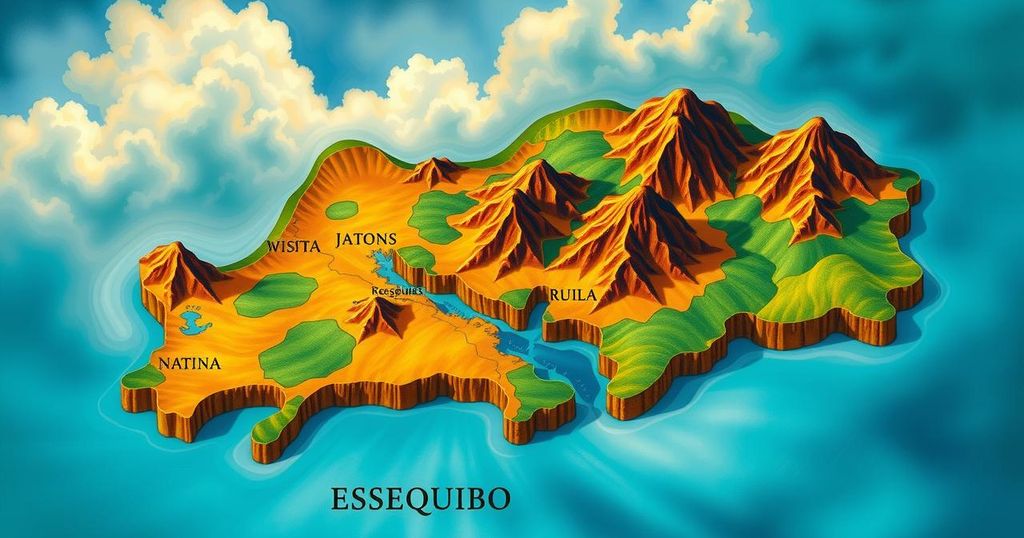Venezuela has rejected a UN ruling that prohibits elections in disputed Essequibo, a region claimed by both it and Guyana. President Maduro’s government maintains that the ICJ has no authority to intervene in its domestic affairs. Meanwhile, tensions rise as Guyana raises concerns over the potential harms of these elections on its territory, rich in resources.
Venezuela’s government is standing firm against a recent ruling from the United Nations’ highest court, declaring it will not adhere to the order that prohibits elections in a disputed region claimed by both Venezuela and Guyana. President Nicolás Maduro’s administration labeled the court’s decision as “categorically” rejected, reiterating its long-standing refusal to recognize the court’s authority. The ruling comes as Maduro’s government plans elections for officials in the resource-rich Essequibo region on May 25.
The International Court of Justice (ICJ), based in The Hague, directed Venezuela not to proceed with these elections at Guyana’s request. Guyana argues that holding elections could inflict “irreparable harm” to the Essequibo area, which constitutes a significant part of its territory and is home to approximately 125,000 citizens. The Venezuelan declaration emphasized that international law does not permit such interference in domestic matters, and claims the Essequibo as an “inalienable part” of its territory.
Venezuela’s statement underscored the Essequibo’s importance, calling it a legacy of the nation’s liberators and portraying its defense as a moral duty. The dispute is complicated by the region’s rich resources, including gold, diamonds, and potential offshore oil reserves. Historically, Venezuela has maintained that the land was part of its territory during the colonial era, and it rejects an 1899 border drawn by international arbitrators. Venezuela’s argument focuses on a 1966 agreement that they believe nullifies this earlier arbitration.
The escalation of tensions has been notable in the past months. In 2023, Maduro made bold claims regarding the potential annexation of Essequibo by demanding a referendum to turn the region into a Venezuelan state. Following this, Caribbean leaders convened an emergency summit, resulting in a temporary agreement to avoid the use of force between the two nations. Nonetheless, the situation remains unresolved and precarious.
Additionally, recent reports highlighted a confrontation where Guyana’s President Irfaan Ali accused Venezuela of a naval incursion into disputed waters that are crucial for an ExxonMobil offshore development. In response, Venezuelan officials refuted the claims, dismissing ExxonMobil’s operations there as unauthorized. Coinciding with all this, Venezuelan citizens are set to cast their votes for governors and legislators in the upcoming elections later this month.
Venezuela’s outright rejection of the UN’s ruling illustrates the deep-seated complexities and tensions surrounding the Essequibo dispute with Guyana. The unfolding situation showcases the historical and territorial claims that are still very much alive in both nations, with resource-rich implications at stake. With elections on the horizon and international pressure mounting, both countries remain at a stalemate that could lead to further friction in this volatile region.
Original Source: www.theguardian.com






